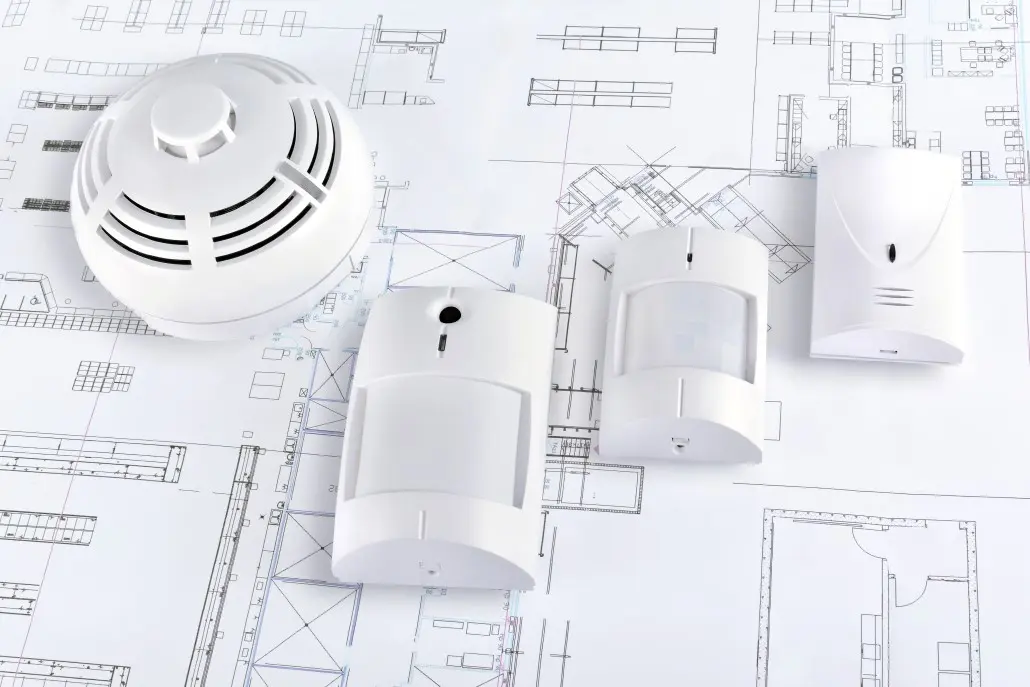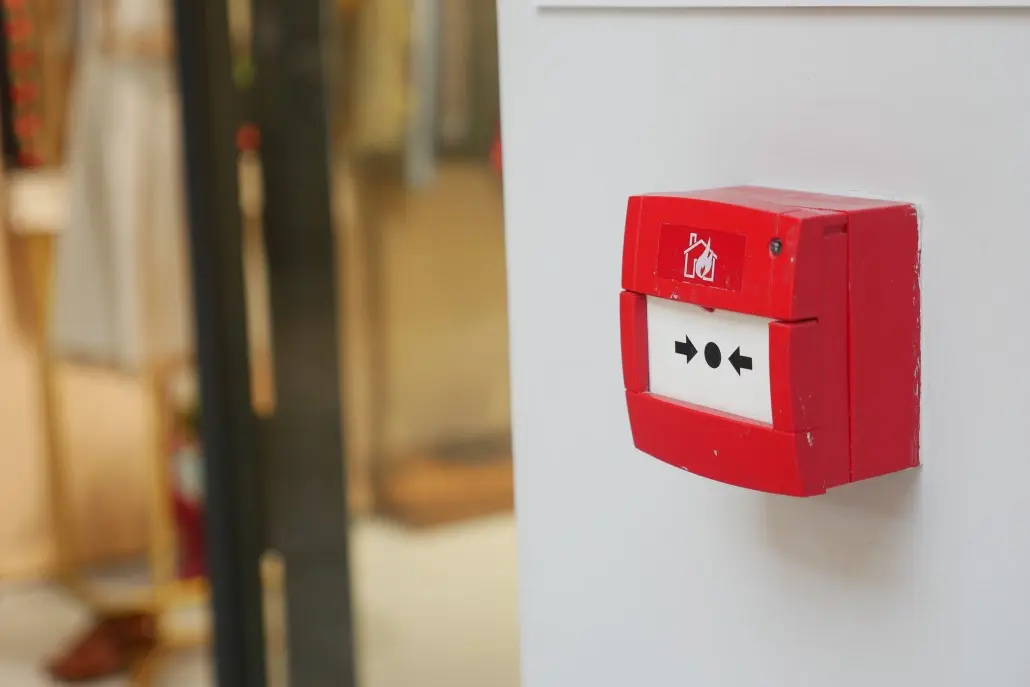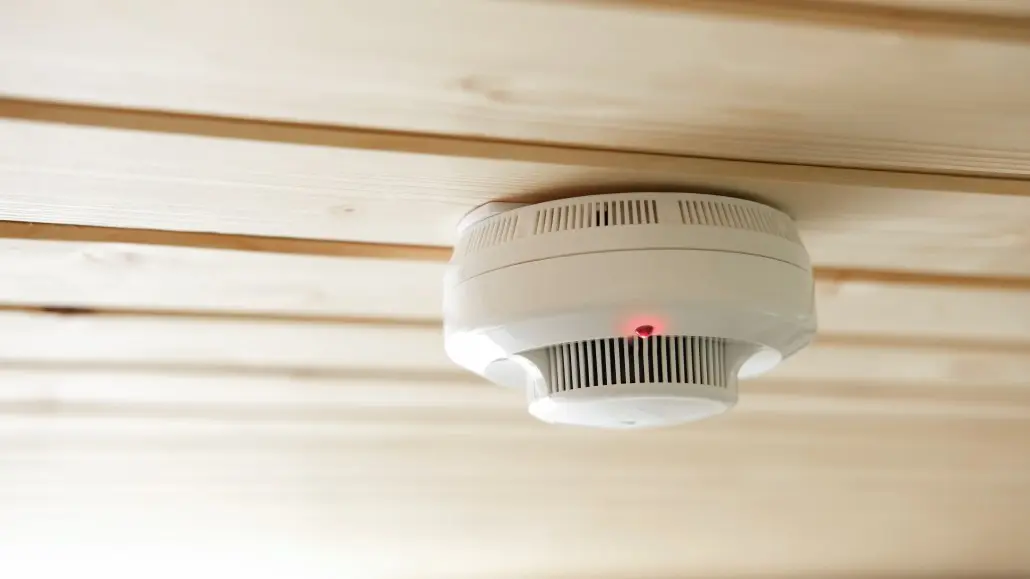
Addressable vs. Conventional Fire Alarms: Which Offers Better Protection?
Compare addressable and conventional fire alarms with verified data on costs, performance, and safety. Expert analysis for commercial properties in 2025.

When it comes to the best safety and security solutions, it's all about prevention. Avoiding any damage to property and ensuring the safety of people on-site involves a reliable security system, and a fire alarm system with properly installed smoke detectors is an essential part of every security network. No matter the location, scale, or use of the property, a top-notch fire alarm system will help keep employees and the property free from harm.
As you look for the best option for your location, understanding the difference between addressable and conventional fire alarm system options is a must to equip your space with the best technology. To help you make the right choice, as experienced Chicago fire alarm installers, we’re breaking down the basics of the different fire alarm systems to guide your selection.
What Is the Difference Between Addressable and Conventional Fire Alarm Panels?
The fundamental distinction lies in how detection devices communicate with the central control panel. This difference cascades into efficiency, cost structure, and performance.
Conventional Fire Alarm Systems: Zone-Based Detection

Conventional systems operate using zone-based detection, where multiple devices unite into a single electrical circuit. When smoke or heat triggers an alarm, the control panel identifies only the general zone (e.g., "Zone 4 —Third Floor East Wing"), not the specific device.
Key characteristics:
- Multiple devices per circuit share the same zone designation.
- Separate wiring runs are required for each zone.
- Emergency personnel must manually search the entire zone to locate the fire source.
- Average zone search area — 2,000-5,000 square feet, potentially adding 3-7 minutes to emergency response time.
Addressable Fire Alarm Systems: Digital Intelligence

In addressable systems, each smoke detector and device is assigned a unique digital address that allows the control panel to report the exact device location (e.g., "Detector 305, Server Room A"). While addressable systems need more advanced programming and configuration, they significantly enhance precision and monitoring capabilities for commercial buildings.
Key characteristics:
- Each device communicates individually with the control panel.
- Loop-based wiring reduces total cabling requirements.
- Digital health monitoring enables proactive maintenance.
Integrating intelligent fire safety with communication systems ensures faster emergency coordination for modern buildings. Learn more about how smart intercom solutions enhance building security in our guide.
Conventional Fire Alarm Systems vs. Addressable Fire Alarm Systems
When choosing between conventional and addressable fire alarm systems, it’s essential to look beyond the basic functionality. The two technologies differ not only in wiring and detection but also in how they impact installation costs, response speed, and long-term maintenance.
Wiring
- Conventional systems require separate wiring circuits for each zone. As building size increases, material and labor costs escalate dramatically due to extensive cabling requirements.
- Addressable systems use communication loops where one wire connects multiple devices. This reduced wiring provides substantial cost benefits during installation, especially in retrofit applications that have the highest installation complexity.
In retrofit scenarios costing $5-$12 per square foot, the reduced cabling requirement of addressable systems directly lowers the most expensive element: labor.

Location Detection
Conventional systems identify only the general zone during an alarm. This limitation means:
- Fire location requires manual searching.
- Critical response time increases.
- Property damage potential escalates during the search period.
Addressable systems provide pinpoint location identification:
- The exact device address is displayed immediately.
- Emergency responders move directly to the incident location.
- Faster intervention limits fire spread and damage.
- Precise location reduces maximum probable loss (MPL) by enabling targeted suppression response.
Cost
Initial investment:
Long-Term Total Cost of Ownership (15-Year Lifecycle)
Conventional systems incur higher costs through:
- Labor-intensive manual maintenance and zone checking.
- Higher false alarm frequency (up to $5,115 per incident).
- Zone-wide suppression activation is causing unnecessary water damage.
Addressable systems provide superior TCO through:
- Digital self-diagnostics reduce maintenance labor.
- Advanced features reduce false alarms by up to 40%.
- Precise location enables targeted suppression, minimizing property damage.
- 15-year TCO: $65,000-$105,000 vs. conventional $75,000-$125,000.
Functionality

Conventional systems:
- Zone-based current monitoring
- Mechanical operation with limited intelligence
- Manual fault diagnosis required
Addressable systems:
- Digital binary code communication
- Intelligent device-level monitoring
- Adjustable sensitivity and multi-sensor detection
- Pre-alarm signaling reduces false evacuations
- Integration capability with building management systems (BMS)
- Cybersecurity compliance for modern NFPA 72 requirements
NFPA 72 (2025 edition) mandates advanced features, including cybersecurity protection and sophisticated sensing devices; capabilities that only an addressable architecture can support.
Many commercial buildings benefit from connecting their addressable fire alarm systems with broader communication networks. Discover the different intercom system types and how they integrate with your fire protection setup in our guide.
What Type of Fire Alarm System Is Right for My Building?

Choose сonventional systems when:
- The initial budget is the primary constraint
- The building is small (under 5,000 square feet)
- The layout is simple with minimal occupancy
- The zone area permits rapid manual fire location
- Regulatory requirements are minimal
Typical applications: Small retail spaces, basic residential buildings, standalone offices with simple floor plans.
Choose addressable systems when:
- Building exceeds 5,000 square feet
- The facility has complex layouts or multiple floors
- Rapid emergency response is critical
- High occupancy or vulnerable populations present
- Regulatory compliance requires advanced features
- Future expansion anticipated
- Integration with BMS is needed
Required applications: Large commercial premises, institutional settings (schools, healthcare), high-risk industrial sites, multi-tenant buildings.
For any facility requiring retrofit installation or operating in highly regulated environments, addressable systems typically offer superior ROI through reduced installation labor and operational efficiency.
For multifamily or mixed-use properties, integrating access control with fire alarms boosts overall safety. Want additional information? See our recommendations in the best apartment intercom systems for multifamily buildings guide.
How to Choose the Right Fire Protection Company for Your Building
Selecting the right fire alarm system is only half the equation; partnering with an experienced fire protection contractor ensures your system is properly designed, installed, and functional in the long run.
Essential Qualifications to Verify
- Licensing and technical expertise: Verify state fire alarm contractor license, NICET certification for technicians, and manufacturer certifications for specific equipment brands. Confirm the contractor demonstrates NFPA 72 code compliance knowledge and experience with your building type and occupancy classification.
- Service capabilities and local reputation: Ensure 24/7 emergency response availability, regular inspection and testing programs, and monitoring service options. Verify established presence in your geographic area using customer references and Authority Having Jurisdiction (AHJ) familiarity.

Key Questions for Prospective Contractors
- What is your experience with NFPA 72 code compliance for my building type?
- How do you handle system design and engineering?
- What maintenance and monitoring services do you provide?
- Can you provide customer references for similar projects?
Reliable communication during an emergency is as vital as proper fire detection. Explore how installing a commercial intercom system can further strengthen your building’s safety infrastructure.
Partner with Forbel for Commercial Fire Protection
At Forbel, our team specializes in designing, installing, and maintaining NFPA 72-compliant fire alarm systems throughout the Chicagoland area. Our certified fire safety specialists provide comprehensive services, including site assessments, system engineering, professional installation, and ongoing maintenance programs.
Forbel is proud to provide the fire alarm solutions your building needs. Contact us today to schedule your complimentary facility assessment.

Get Expert Help in Choosing the Right Fire Alarm System
Every building has unique fire safety needs, so there’s no one-size-fits-all approach. Our certified specialists at Forbel can assess your property and recommend the most effective, code-compliant system for your layout and budget.

Heading







